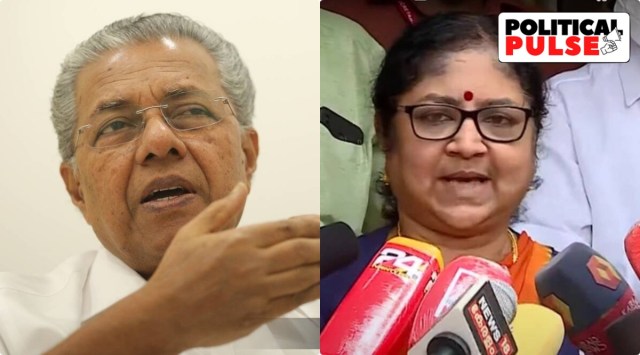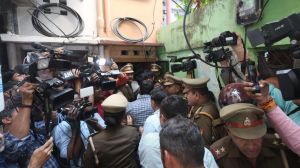Instead of governor, have separate V-C for each university, suggests Kerala panel
According to the panel report, a V-C should be an educational expert selected by the proposed board of regents, which would be vested with the power to appoint a selection committee.
 Higher Education Minister R Bindu said the report would be implemented only in accordance with the policy of the government. (Express/File)
Higher Education Minister R Bindu said the report would be implemented only in accordance with the policy of the government. (Express/File)A panel set up to look into higher education reforms in Kerala has suggested that each university should have a separate vice-chancellor with the chief minister becoming a ‘visitor’ to all universities — changes that, if implemented, would curtail the powers of the governor and vest more power with the CM.
The panel, headed by Prof Shyam B Menon, submitted its report to the Higher Education Department Tuesday. The panel suggested that a university senate should be made a “board of regents”, made up of prominent persons from education, industry and culture, apart from government representatives.
Higher Education Minister R Bindu said the report would be implemented in accordance with government policy.
According to the report, a V-C should be an educational expert selected by the proposed board of regents, which would be vested with the power to appoint a selection committee. The term of a V-C should be fixed at five years and an incumbent can be given another chance if they are left another five years to attain the age of 70.
The panel has also recommended changes in the fee structure and that more self-financed courses should be started. Self-financed courses are those on which the state does not spend anything and institutions themselves generate funds to run.
For recruitment of faculty members in colleges, a higher education service commission should be formed, says the panel.
The panel has suggested increasing the number of seats and courses in the higher education sector to hike the enrolment to 60 per cent within the next ten years. In tune with the CPI(M) government policy to promote private deemed universities, the report sought special legislation to be enacted for establishing such universities.
The panel also recommended that the government funding in state-run institutions should be brought down to 60 per cent, and the rest of the financial requirements should be sourced from non-government agencies. It said only students whose annual family income is less than Rs 6 lakh should be exempted from paying fees.
Different fee structures should be introduced for other students depending upon their family income, the report said. Institutions should levy 25 to 35 per cent of their cost from students as a fee, according to the panel. It called for accepting private contributions for improving infrastructure in the higher education sector.





- 01
- 02
- 03
- 04
- 05

























